If you’re lucky enough to live in an area with heron birds, you may have seen them standing with their foot up in a river or gliding effortlessly over some trees. These are massive birds, and if you’ve ever been up close to one, you realize just how big they are.
Once you can appreciate their large size, it’s natural to wonder, “What animals eat herons?” It’s almost like wondering what type of animal could take down a bald eagle.
With their size, sharp claws, and strong, long beaks, herons don’t have as many natural predators as many smaller birds. Good luck to the house cat that tries to take down a heron in the park. However, larger animals do have a penchant for hunting herons. Animals like coyotes, bald eagles, and bobcats are known to hunt them.
Even their main predators approach the prospect of taking a full-sized North American adult blue heron on with caution. Most of the time, they target smaller herons or their eggs instead.
Here’s a look at some of the main heron predators and some information on how they choose their targets.
Table of Contents
Alligators
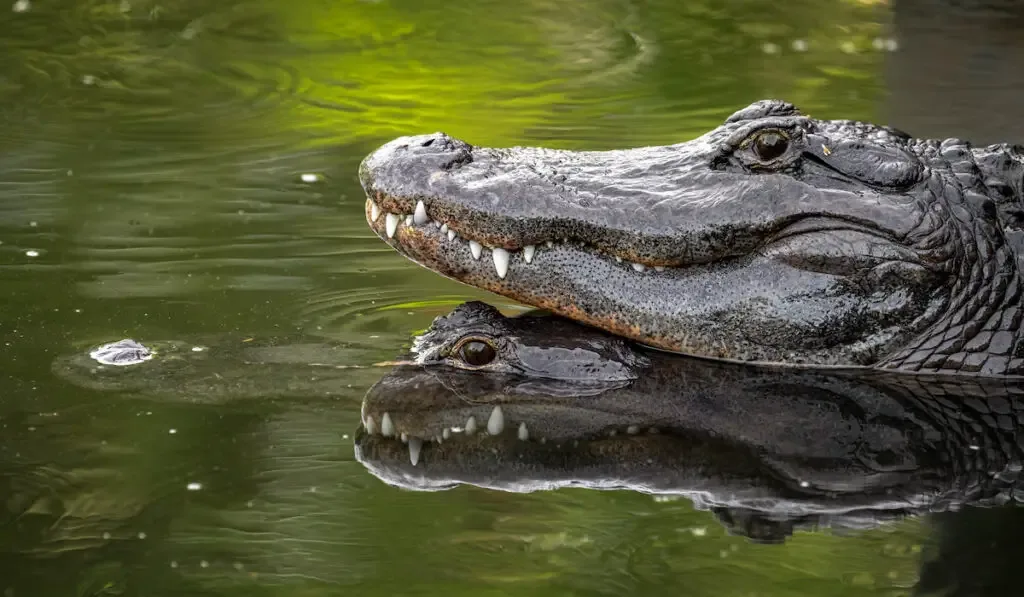
Alligators can be quick in short bursts, but for the most part, these are slow-moving creatures that use disguise to creep up on their prey. Blue herons love to spend hours standing in rivers and along other waterways, so it can be a target-rich environment for a hungry alligator.
In certain parts of the country alligators frequently make a meal out of careless herons and other large water birds.
In fact, alligators hunting herons are so common that many property owners in southern states use crocodile decoys on their property to protect fishing lakes and other reasons they may want to keep herons away.
Bobcats
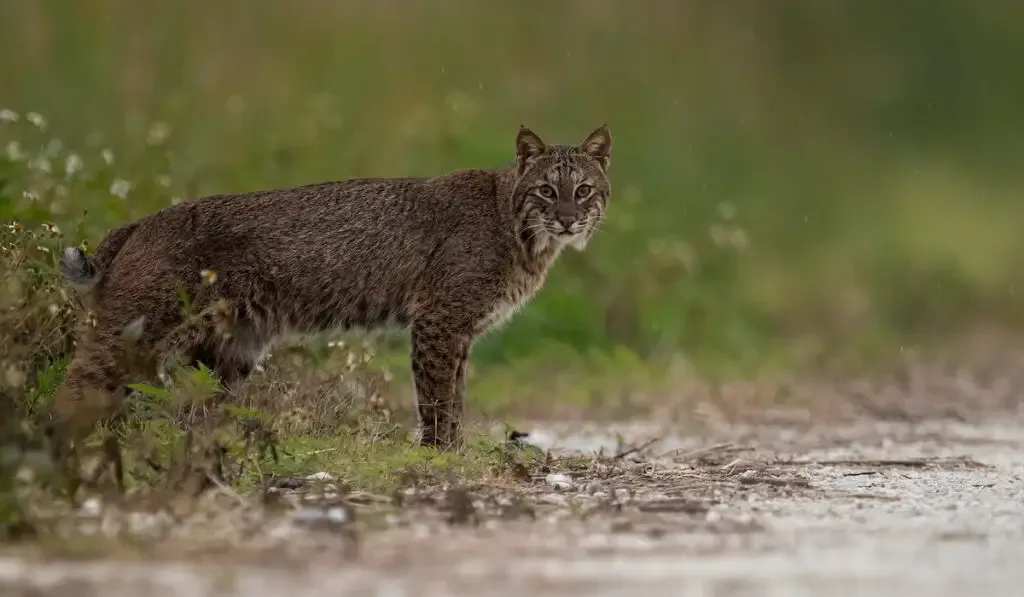
The story of cats stalking and hunting birds is as old as time. If you’ve ever owned a cat, you know what prolific hunters even small cats can be. They can spend every minute of the day crouched in a pouncing position as they inch toward an unsuspecting bird.
Every year, cats kill millions of birds, and if you own a cat, you’ve likely found dead birds laying around the house from time to time.
As we’ve said already, taking down a large blue heron is quite the challenge for a small housecat, but a bobcat is a completely different prospect. These cats are larger, more muscular, and evolved to hunt.
They can kill a heron, but the strike needs to be surgical lest they get stuck with that sharp beak that acts as a sword.
Bald Eagles
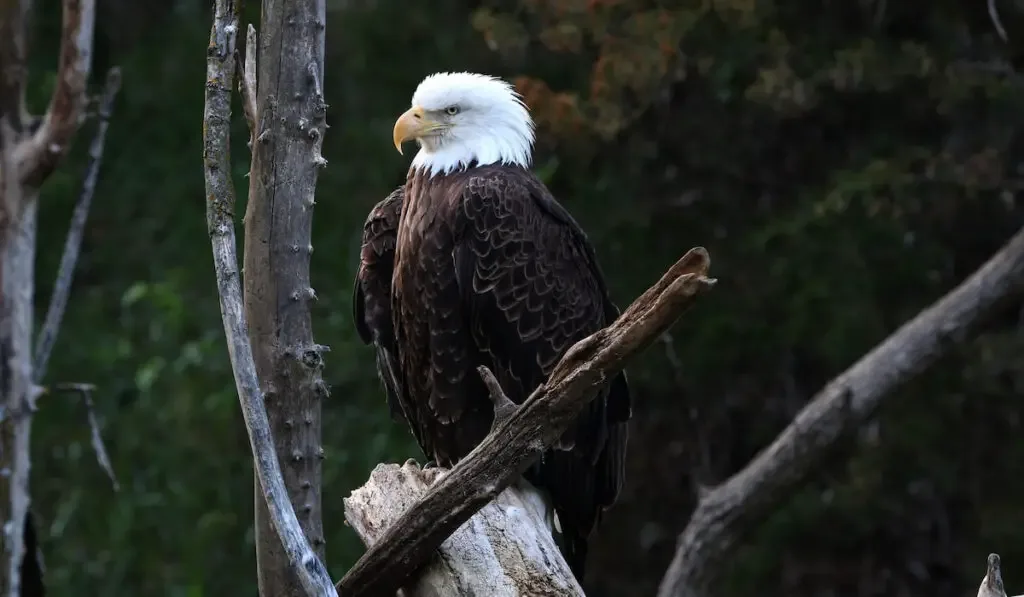
Interestingly, herons are known to sometimes build nests and raise chicks right next door to bald eagles.
The reason being that bald eagles are ferocious fighters, and relatively territorial. While there is some risk being so close, the eagles fight off and deter many other would-be predators.
That decision, however, means that their chicks are exposed to hungry eagles. The tactic, though, seems to be working, because researchers say that the heron survival rate, over the past decade, has improved.
Other birds have also been known to use this method of nesting close to potential predators to reduce exposure to larger threats.
Coyotes
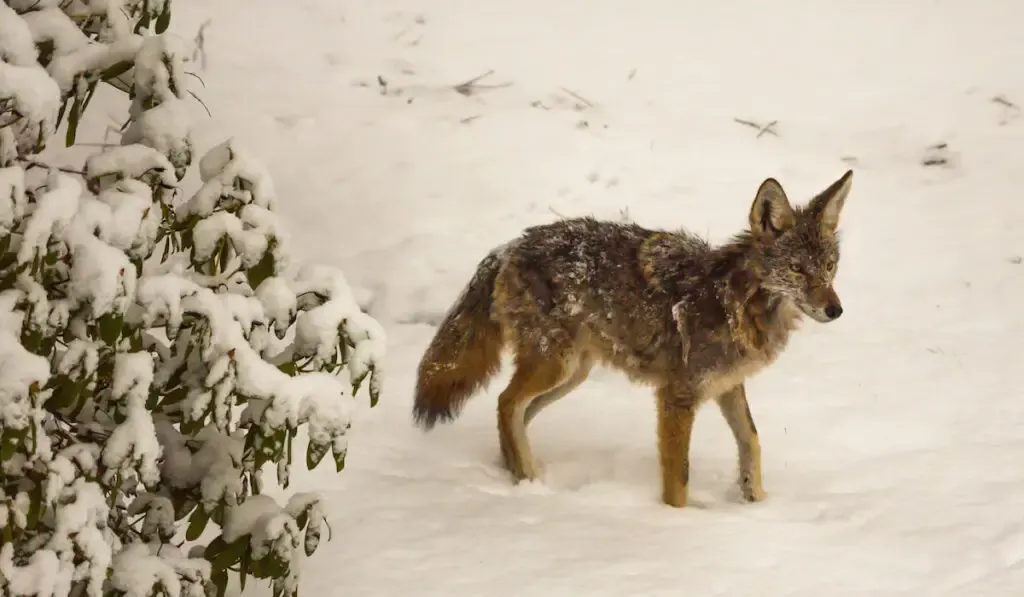
Coyotes are big enough and strong enough to take down a large blue heron. Like most predators, though, coyotes want easier targets. That’s why they often look for young birds or older birds without the strength of a normal adult.
Even for coyotes, killing a heron comes with a lot of risks. One wrong move and they could suffer significant injuries or even die trying to get to a heron’s neck.
Raccoons
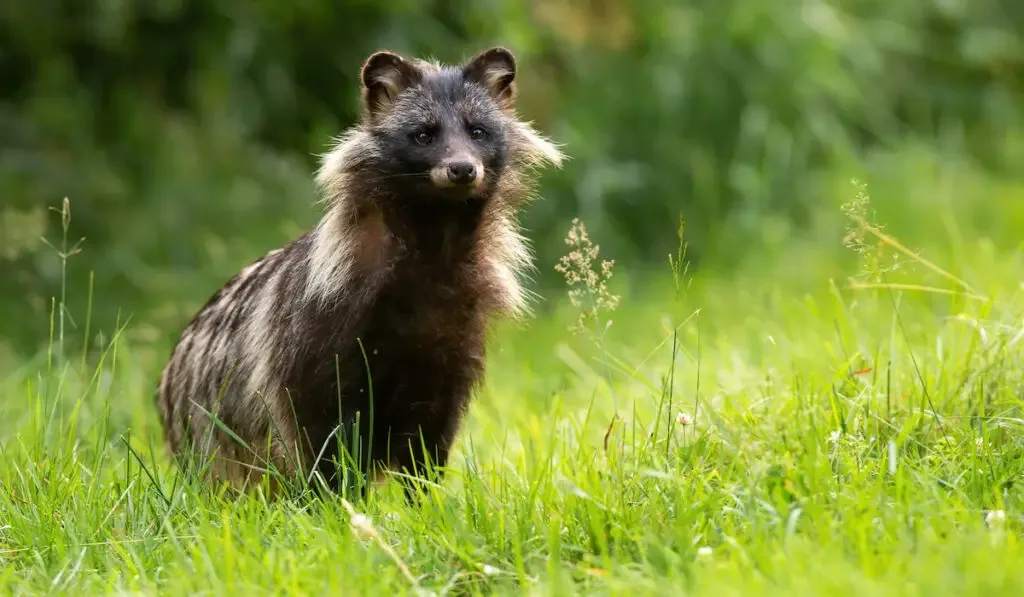
Raccoons aren’t interested in a fight with an adult heron. They will, however, monitor when the parents are gone and sneak into a nest for a snack on some eggs. These nocturnal predators are famous for raiding bird nests in addition to your neighborhood’s garages and trash bins.
When the adult heron is present, there is essentially no chance of a raccoon victory. In fact, they likely won’t even get close.
Herons in some areas, using strategies similar to building nests next to bald eagles, make their nests near or on top of water areas known to have alligator populations.
Yes, the alligators are a threat, but it’s one that the birds can see, and alligators are often enough to keep raccoons and other nest predators away.
Red-Tailed Hawks
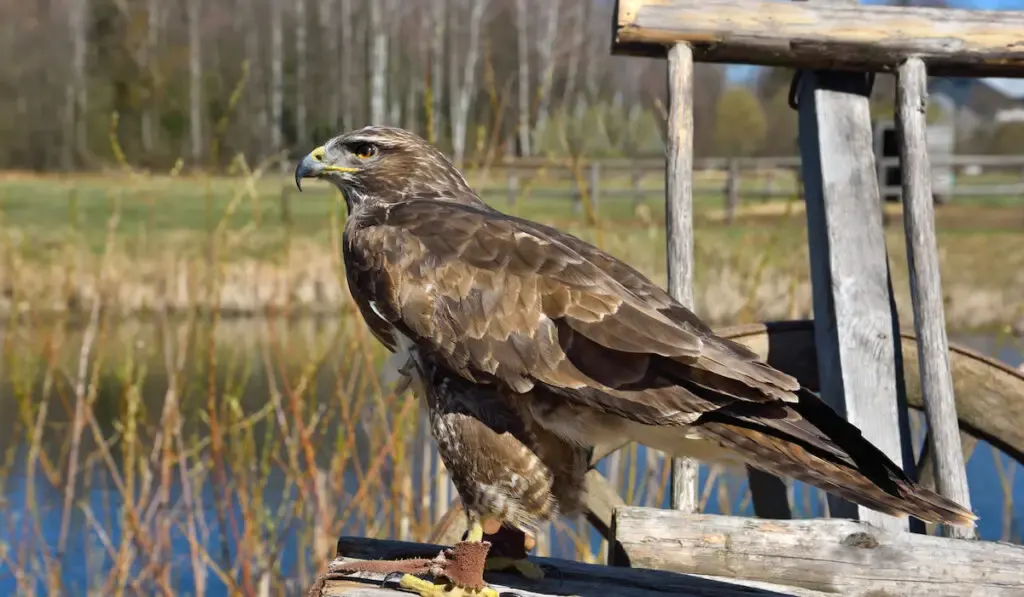
Red-tailed hawks are another large carnivorous bird with the ability to fight and kill an adult heron.
While they may not get as much fame and attention as the bald eagle, there are many more red-tailed hawks in America. If you’ve driven around on the U.S. highways system and seen large birds circling above, it’s likely you’ve seen one.
If they aren’t vultures or crows, there is a good chance that it’s a red-tailed hawk. There are a lot of them and they are very big birds with sharp claws.
Hawks won’t usually hunt for adult herons, but if they’re hungry enough and the opportunity presents itself, they may take a chance. Typically, though, they’re hunting for young adults or looking for nests where they can pick off an egg or a chick without too much trouble.
Crows
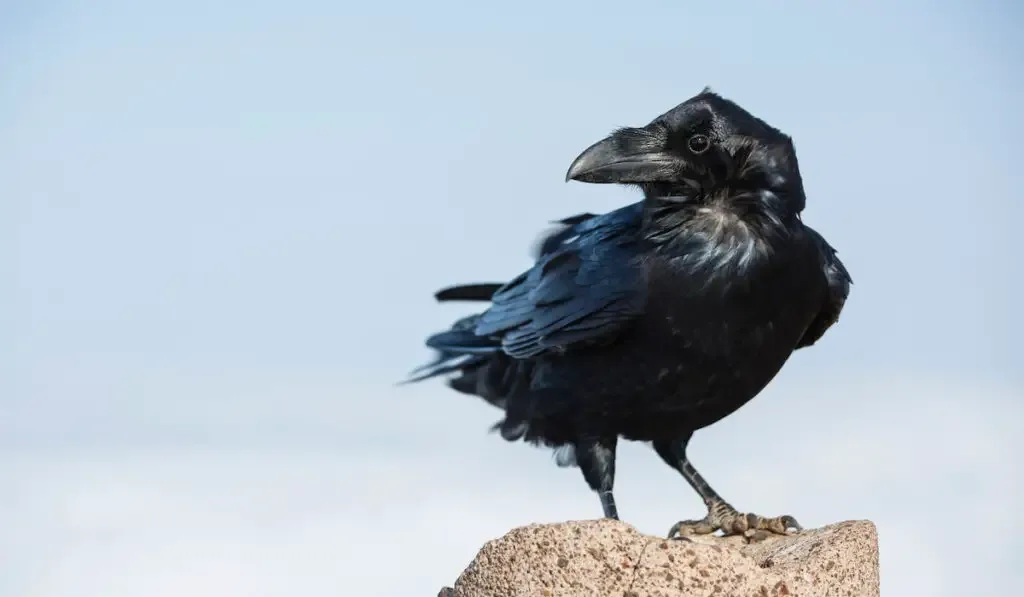
Crows are sort of like the raccoon of the sky. They know where the food is, but they aren’t willing to get into a scrap to get to it. Instead, they play the waiting game and wait until the adults are comfortable leaving. Then, they strike.
If they aren’t pecking on some roadkill on the side of a freeway, crows are circling the trees looking for empty nests with eggs or chicks inside where they can swoop in and grab something before a parent returns.
Bears
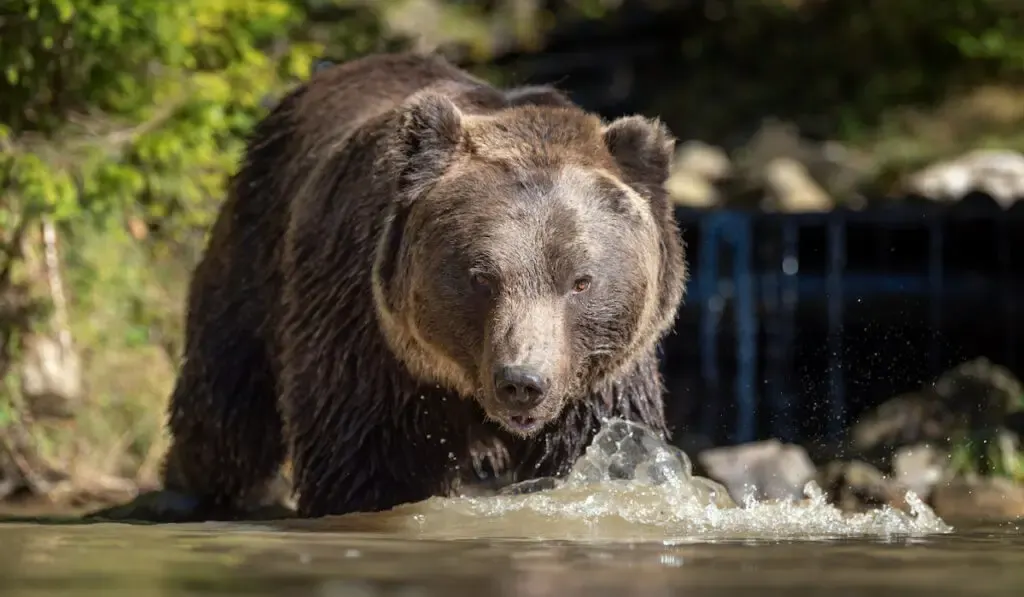
Good luck trying to capture a bear eating a blue heron. Hopefully, you’ll never have to see something like that and you can stay as far away from bears as possible. Still, bears have been known to hunt and eat herons that they find standing in a river or fishing on a lake.
Bears are large enough predators where attacking a full-sized heron doesn’t pose too much of a threat.
They might get hurt by the beak, but the thickness of their hide provides fairly good protection. Bears aren’t the quietest of hunters, so they don’t have a very high success rate hunting birds. They do love to find heron eggs or chicks and will make a quick meal out of them.
Vultures
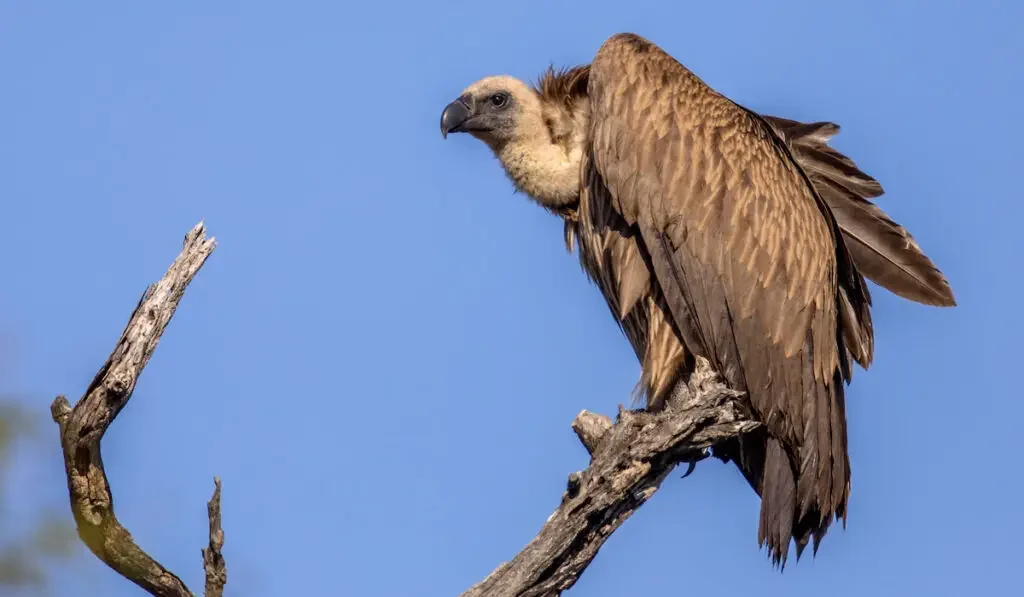
The term vulture has become synonymous with taking advantage of a situation or someone else’s misfortune, and it’s no exception when it comes to hunting herons.
No vulture will willingly take on an adult heron. If this happens, it would be extremely rare. Vultures are, however, extremely patient and smart birds.
They know how to find heron nests and wait them out until parents have to leave to look for food. That’s when they’ll find their way into the nest to have their way with the eggs or young chicks there.
Final Thoughts
Avoiding vultures and other similar predators is one of the main reasons herons take to building their nests closer to some of their strongest predators.
It can be risky but it’s an interesting strategy that has actually worked over the years.
